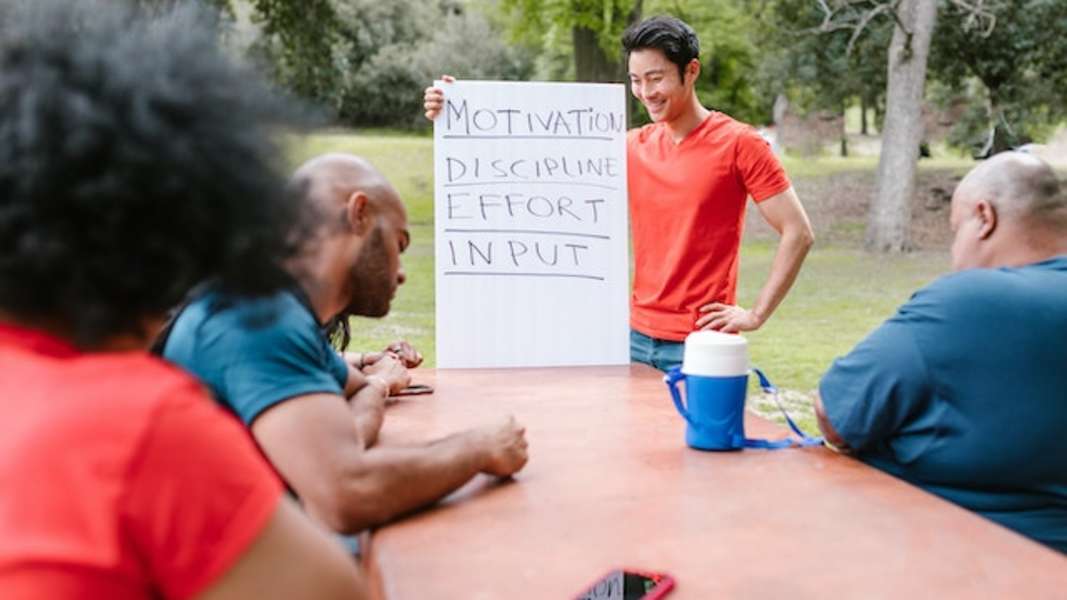If you’ve been invited to a leadership interview, congratulations! You’re one step closer to your dream job. But what exactly is a leadership interview? And how can you prepare for it? Here’s everything you need to know about leadership interviews, from what to expect to how to ace them.
What is a leadership interview?
A leadership interview is a conversation between a potential employer and a job candidate in which the interviewer assesses the candidate’s ability to lead. Leadership interviews often focus on the candidate’s past experiences in leadership roles, as well as the personal qualities that they believe make them a good leader.
The interviewer will also ask the candidate questions about their vision for leadership and how they would handle various situations. The goal of the leadership interview is to get a sense of whether the candidate has the skills and qualities to be a successful leader.
To give you an idea of what you might be asked, here are 10 of the most common leadership interview questions.
1. What are your thoughts on effective leadership?
When you are interviewing for a leadership position, you may be asked what your thoughts are on effective leadership. This is a great opportunity to share your ideas and demonstrate your knowledge on the subject.
Here are a few tips on how to answer this question:
-
First, take a moment to think about what makes an effective leader. What qualities do they possess? What kind of things do they do that inspire others?
-
Once you have a good understanding of what it takes to be an effective leader, you can start sharing your own thoughts on the topic. Try to be as specific as possible and give examples of times when you have seen these qualities in action.
-
Remember that there is no one-size-fits-all answer to this question – everyone has their own definition of what makes an effective leader.
2. Can you give me an example of a time when you had to lead a team or a group?
Answering this question can be difficult, but it is important to remember that the interviewer is looking for qualities that are essential to good leadership. Here are a few tips:
-
Think of a time when you had to lead a team or a group in a challenging situation. This could be a time when you had to achieve a difficult goal, solve a complex problem, or manage conflict within the group.
-
Explain what you did in the situation and why you acted as you did. Be sure to highlight your ability to think strategically, make decisions under pressure, and motivate others to achieve results.
-
Describe the end result of your leadership in the situation and how it benefited the team or group. This will show that you are capable of achieving successful outcomes through your effective leadership skills.
3. What do you think makes a good leader?
The interviewer is bound to ask you what you think makes a good leader. To answer this question effectively, it’s important to first understand the qualities that make up a good leader. Then, you can share how you embody those qualities in your own leadership style.
Some of the key qualities of a good leader include being able to inspire and motivate others, having excellent communication skills, being able to make tough decisions, and being able to delegate tasks effectively.
Explain why you think each of these qualities is important in a leader and give examples of how you have demonstrated these qualities in your own life. By highlighting your own experiences, you will show the interviewer that you have the potential to be a successful leader.
4. How do you handle conflict within a team or a group?
The interviewer may ask how you handle conflict within a team or group. This question assesses your ability to manage and resolve disagreements among team members.
Here’s how to answer:
-
First, explain how you generally handle conflict within a team or a group. Do you allow team members to openly discuss their differences, or do you prefer to mediate disagreements yourself?
-
Next, give a specific example of a time when you had to manage conflict within a team. Describe the situation and how you resolved it.
-
Finally, emphasize that resolving conflict is essential to maintaining a productive and cohesive team.
5. What is your preferred leadership style?
When interviewers ask about your leadership style, they are hoping to gain insights into how you manage people and projects.
To answer this question, you’ll need to do some self-reflection to determine what your leadership style is and how it aligns with the company’s needs.
There are many different types of leadership styles, but most can be boiled down to a few key categories. Do you prefer to lead by example? Do you take a more hands-off approach, providing guidance and support when needed but allowing your team members to take the lead? Or do you prefer to take charge and micromanage every aspect of a project?
It’s important to be honest with yourself so that you can accurately communicate your style to the interviewer.
6. When was the last time you had to step up and take charge of a situation?
When applying for a leadership position, expect to be asked about the times you’ve had to take charge of a situation. The interviewer wants to know if you have the ability to take initiative and lead others effectively.
Think of a time when you were faced with a challenging situation at work. Maybe you had to step in and manage a project when your team leader was out sick, or perhaps you had to rally your coworkers to meet an important deadline.
Whatever the specific situation was, describe what you did and how your actions led to a positive outcome. Be sure to focus on your ability to take charge and handle difficult situations under pressure. This will show that you’re capable of being an effective leader.
7. Can you tell me about someone who was an influential leader in your life?
It’s not uncommon for interviewers to ask about influential leaders in your life. They want to know if you can identify the qualities that make a good leader and if you have experienced those qualities firsthand.
Think of a leader who has had a positive impact on your life. It could be someone who has mentored you, or someone whose leadership style you admire.
Once you’ve decided who to talk about, explain why this person was influential to you. Here are some possible points you could touch on:
-What did this person do that was so influential?
-What qualities did this person possess that made them a good leader?
-How did this experience shape the leader you are today?
Finally, tie your answer back to the leadership position you’re applying for. Explain how the lessons you learned from this leader will help you succeed in the role.
8. How do you inspire others to achieve their goals?
When interviewers ask “How do you inspire others to achieve their goals?”, they are looking for evidence that you can motivate and encourage other people to reach their full potential.
Each person is motivated by different things, whether it be recognition, financial compensation, or personal satisfaction.
As a leader, it is your job to find out what motivates each individual on your team and use that information to inspire them to achieve their goals. This requires strong communication skills, as well as the ability to really listen to and understand what others are saying.
9. What challenges have you faced as a leader, and how did you overcome them?
Leadership positions often come with great responsibility and high expectations. As a result, interviewers often ask questions about the challenges candidates have faced in leadership roles in order to get a sense of their problem-solving skills and ability to persevere under pressure.
Some common challenges faced by leaders include making difficult decisions, handling conflict within the team, and dealing with pressure.
To answer this question effectively, be sure to discuss the steps you took to solve the problem, how you motivated the team to keep moving forward, and the end result.
10. How do you address suggestions on your ideas from co-workers?
Leadership roles require the ability to listen to others and consider their input before making decisions. The best leaders are able to take into account all perspectives and find a middle ground that everyone can agree on. Asking this question during an interview allows the interviewer to get a sense of your ability to do just that.
The answer to this question should demonstrate your ability to be open-minded and receptive to others’ suggestions, even if you don’t necessarily agree with them. You should also show that you are able to have difficult conversations with co-workers in order to reach a compromise.



